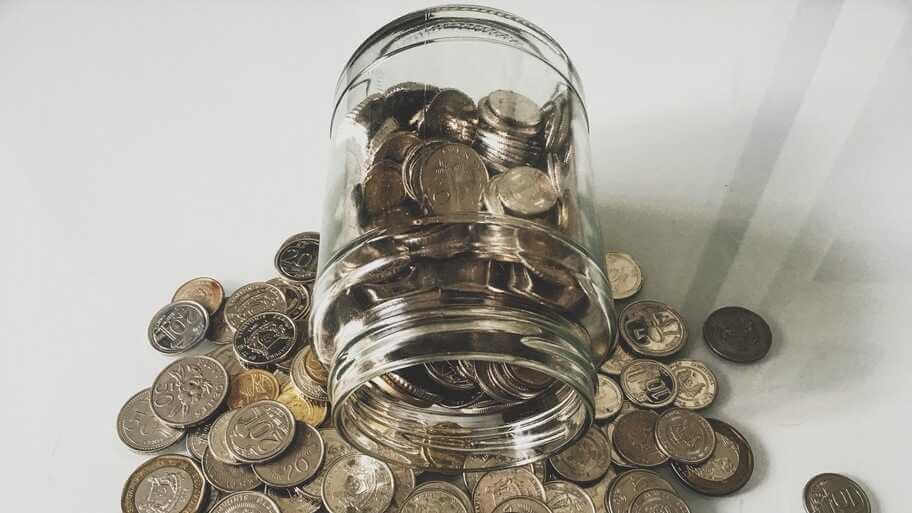Getting a personal loan is a popular option for people in unexpected financial crises. Such loans allow them to handle urgent situations when they don’t otherwise have enough money on hand. Unfortunately, the economy is struggling through the COVID-19 pandemic, making loan repayment extra difficult for many. So, you may be interested in personal loan deferment.
If you are finding it hard to repay your loans on time, you may wish to defer the loan repayment for a month or more. If circumstances prevent you from paying on time, your lender may allow you some time to reorganize yourself.
Delaying a loan repayment reduces financial stress. However, deferring also increases the overall cost of your loan in the end. Read on to understand how loan deferment works.
What Is Deferment on a Personal Loan?
When you defer a loan payment, you take a short-term break from paying a loan. Deferring a payment does not free you from making payment, but rather extends the loan period.
Both the lender and client must adhere to the loan terms and conditions.
Can I Defer Payment on a Personal Loan?
You can defer payment on a personal loan. To get a deferment, inform your lender of your situation. In most cases, lenders consider deferments for individuals in financial crises.
Some lenders grant loan deferments without interest. This means that your loan does not collect additional interest over the period for which payment is paused. Others continue charging interest when you halt payments.
Let’s say your repayment period is twelve months and you defer for two months. If the loan interest accrues, you end up paying interest for fourteen months.
Deferment periods vary from lender to lender. The majority of lenders have one- or two-month deferment terms. But this period is extendable in case the hardship prolongs.
How to Calculate How Much Deferment Can Cost
To determine how much a personal loan deferment could cost, first inquire whether your loan accruement will accumulate interest. The deferment cost will typically depend on the lender’s policies, so read the fine print on your loan.
A personal loan deferment calculator can help you compute the cost you will incur, but you can also do this calculation on your own. Here’s an example to see how you can calculate the cost of a loan deferment:
Say you have a loan balance of $10,000 with an Annual Percentage Rate (APR) of 15% and you plan to halt payments for two months.
First, divide the APR by 12 to get the monthly interest rate. In this case, the monthly interest rate is 15%/12 months = 1.25%/month.
Next, multiply the monthly interest rate by the amount of the loan. In this case, the interest per month is 0.0125 x $10,0oo = $120/month.
Next, multiply the monthly interest by the number of months that the loan is deferred. So, the interest over two months would be by $120 x 2 = $240.
This is the total that you will pay in interest over the two-month deferral period. So, the total that will be due after the period is $10,000 + $240 = $10 240.
Note that this is only a rough estimate of the interest accumulation and does not account for compounded interest. You should budget for slightly more interest than this calculation suggests.
How To Defer a Personal Loan Payment
It’s important to let your lender know if you have a problem repaying your loan on time. If you don’t inform them, they’ll consider this late payment as the start of a default.
Make a call, log in, or send an email giving reasons for deferred payments. This action doesn’t automatically guarantee you a waiver. A lender may not approve your deferment applications at once.
When seeking deferment, understand the rules. Know the dates when the deferment starts and ends and whether or not you will be charged interest over that time.
How Deferred Payments Affect Your Credit
Every month, your lender describes your payment as paid on time, deferred, paid late, or delinquent. This impacts your credit score.
Deferring a personal loan payment does not affect your credit score because your lender notifies credit institutions that they’ve approved the delay. Still, ensure that you go through your credit statements to verify that this has been properly recorded.
If you inform your lender about a deferment on time, they should work on your approval as soon as they can. If a lender approves your loan deferment, your credit is safe. However, if the lender rejects your deferment application, it impacts your credit score negatively.
Most of the time, lenders modify a borrower’s account to start the process of deferment. If you manage to get your funds together before your application is approved, it is best to make your payment instead.
Keep in mind that you must apply for another deferment if the initial one ends and you still cannot make your payment. You may pay late fees if you forget to reapply, which will hurt your credit score.
Legal Action Against Loan Defaulters
It is a civil crime to default on a loan. But it is not a criminal offense. So, there is no police arrest. The defaulters are, however, responsible for clearing off the debts they owe.
When you fail to pay the equated monthly installment, the lender will send you a notification. If thirty days elapse with no response, the lender will send a notice to your address. If you fail to respond, the lender has the legal right to engage debt collectors.
A lender will state your credit scores as “written off” to the bureau if 180 days elapse before payment. They may also file a case against the defaulter to get their money back.
Debt Consolidation Loans for Blacklisted Clients
Debt consolidation is the act of getting a new loan to settle multiple debts. You pay off several smaller debts with a larger loan, leaving you with just one loan to worry about. This can be a good idea, especially if you can replace your debts with a loan at a lower interest rate.
If you are a blacklisted customer, and you feel that a consolidated loan might pull you out of a cycle of debt, then speak with multiple lenders to see if they will pre-qualify you for a loan. If the loan is not urgent, work on your credit score to have a better chance to qualify at a lower rate and for the loan amount you need.
If you are a salaried worker, a 401k loan for debt consolidation allows clients to borrow funds from their retirement savings account. Depending on your employer’s plan, you can pledge as much as 50% of your savings or up to $50,000 a year.
Other Options to Cut Costs During The COVID-19 Crisis
-
-
- Merge or refinance loans. Look for lenders offering low interest rates.
- Look for help from a charity or religious organization that may be able to support you.
- Some lending institutions offer hardship curriculums. You can seek immediate help from them.
- Check for government help. There might be incentive packages for those in hardship.
- There is an expansion of unemployment benefits for persons sent home due to the pandemic.
-
Final Thoughts
No one is immune to a financial crisis. When in financial hardship, do not be afraid to let your lender know about your situation. Work out a deferment plan together and get temporary relief as you get back on your feet.
Featured Image: Twenty20








